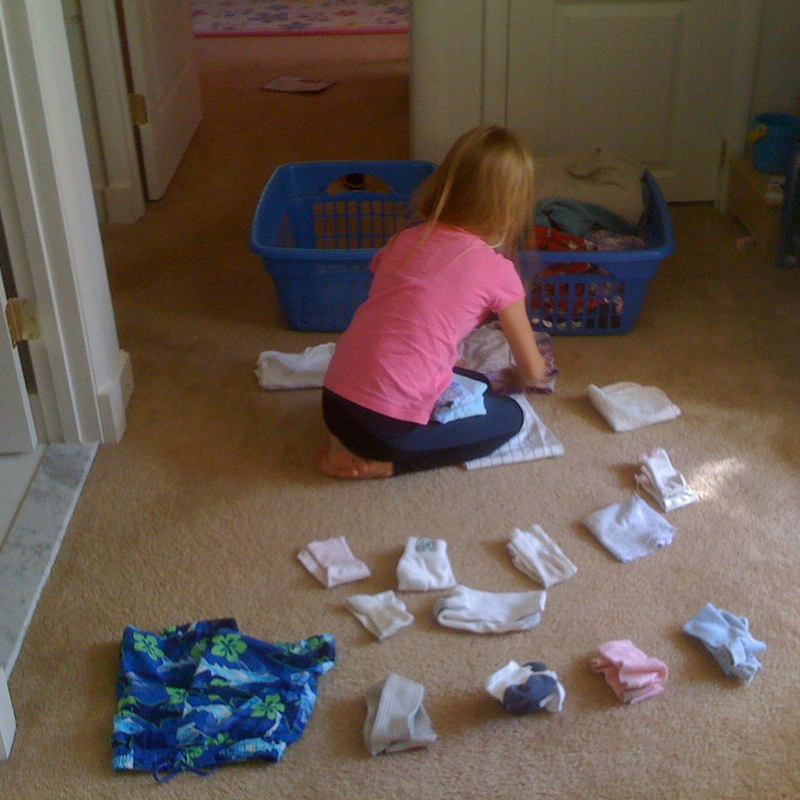- Study Says Most Parents Don’t Use Car Seats In Ride Share Vehicles Like Uber
- This 12-Year-Old Boy Is A Sophomore Aerospace Engineering Major!
- Fire Safety Experts Warn Of Hand Sanitizer Danger After A Mom and Kids Escape House Fire
- Recall Alert: Peaches May Be The Cause Of Salmonella Outbreak, 68 People Ill
- Summer Vacation In The Days Of COVID: Tips To Stay Safe
- How To Safely Grocery Shop During The Coronavirus Pandemic
- Michigan Teen With Vape-Related Illness Undergoes Double Lung Transplant
- Teen Kicks Off Anti-Vaping Campaign From Hospital Bed
- Teenager Receives Life Sentence For Strangling Sister To Death Over A Wi-Fi Password
- Toddler Falls To Death From 11th Deck of Cruise Ship
Should Parents Give Allowances?


A 6 year-old asked his Dad for an advance on his allowance for a toy. This is the response he got!

Teaching children the value of money is a crucial life skill they will use for the rest of their lives. But does this mean all parents should give their kids an allowance? And if so, what age is best to begin?
The answers to these questions depend largely on each family; there is no one-size-fits-all recommendation.
According to KidsHealth.org, parents should consider starting an allowance by the time a child is 10 years old. By this age, he/she probably has some decision-making experience under her belt, but she still relies on mom and dad for guidance.
Many experts, as a general rule, advise to give kids a weekly allowance of $.50 to $1 per year of the child’s age — so $4 to $8 for an 8-year-old would be an acceptable range. It’s a good idea to increase this amount as your child gets older, too. But again, the specifics of how much allowance to give depends on each family’s financial situation and what parents are comfortable with.
Another aspect of giving an allowance is whether or not kids should be expected to work for it. Paying children money in exchange for completing household chores serves as a great motivator for many families. It also teaches them the value of hard work; nothing comes free in life, after all. For other families, kids might only get paid for chores that go above and beyond what is required of them. Still, other parents don’t require any work for a weekly allowance, and some might opt out of allowance-giving altogether.
 One expert doesn’t agree that giving kids an allowance is a good idea in the first place. In fact, Lewis Mandell, a professor of finance and managerial economics, goes so far as to say that giving kids a weekly allowance is “cruelty.” He argues that surveys show that high-schoolers who receive an allowance have the weakest personal money management skills, test the poorest and are more likely to be “slackers” as adults. At the same time, Mandell points out that parents who give an allowance and also take the time to talk with children about money issues, budgeting and credit tend to have kids who do just fine.
One expert doesn’t agree that giving kids an allowance is a good idea in the first place. In fact, Lewis Mandell, a professor of finance and managerial economics, goes so far as to say that giving kids a weekly allowance is “cruelty.” He argues that surveys show that high-schoolers who receive an allowance have the weakest personal money management skills, test the poorest and are more likely to be “slackers” as adults. At the same time, Mandell points out that parents who give an allowance and also take the time to talk with children about money issues, budgeting and credit tend to have kids who do just fine.
Another Mom listed on goodhousekeeping.com 5 reason why she doesn’t give her child an allowance:
- They won’t get paid for housework when they’re adults.
- Money isn’t the best reward and it doesn’t motivate every child.
- I’d rather they focus on being a part of a family than what is in it for them.
- An allowance teaches them that housework is something they should want to avoid.
- It’s not the only way to teach kids about money.
At the end of the day, parents must decide what works best for their family. Only after taking into consideration the lessons they hope to instill in their children, can they decide on how to best approach the big allowance question.








0 comments